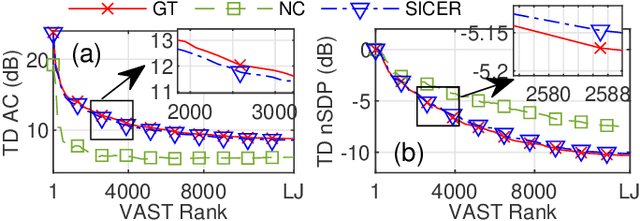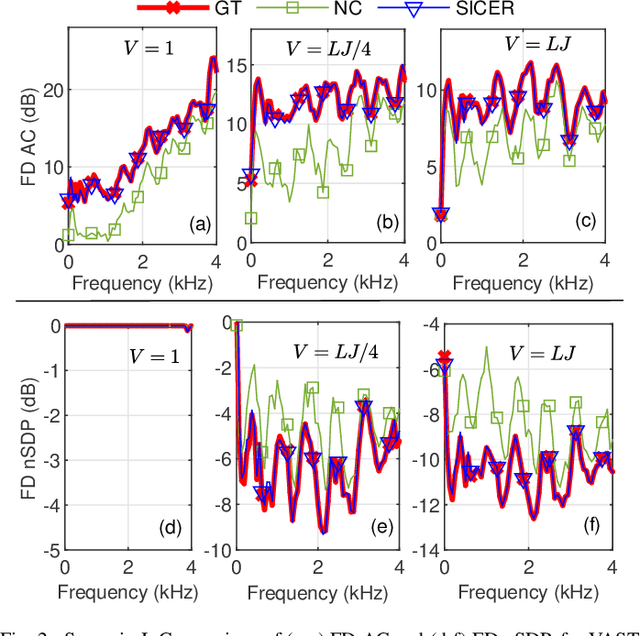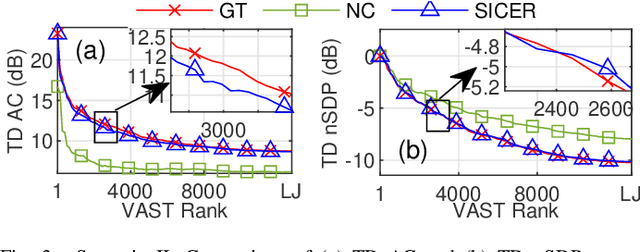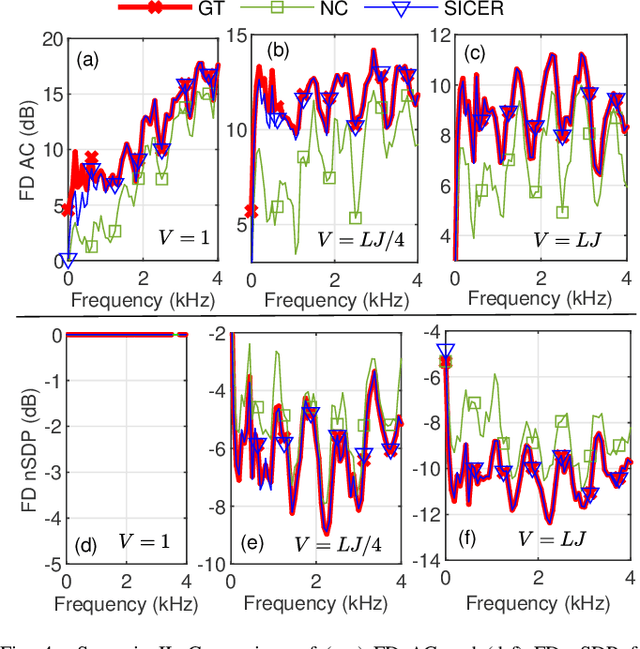Sound Zone Control Robust To Sound Speed Change
Paper and Code
Oct 10, 2024



Sound zone control (SZC) implemented using static optimal filters is significantly affected by various perturbations in the acoustic environment, an important one being the fluctuation in the speed of sound, which is in turn influenced by changes in temperature and humidity (TH). This issue arises because control algorithms typically use pre-recorded, static impulse responses (IRs) to design the optimal control filters. The IRs, however, may change with time due to TH changes, which renders the derived control filters to become non-optimal. To address this challenge, we propose a straightforward model called sinc interpolation-compression/expansion-resampling (SICER), which adjusts the IRs to account for both sound speed reduction and increase. Using the proposed technique, IRs measured at a certain TH can be corrected for any TH change and control filters can be re-derived without the need of re-measuring the new IRs (which is impractical when SZC is deployed). We integrate the proposed SICER IR correction method with the recently introduced variable span trade-off (VAST) framework for SZC, and propose a SICER-corrected VAST method that is resilient to sound speed variations. Simulation studies show that the proposed SICER-corrected VAST approach significantly improves acoustic contrast and reduces signal distortion in the presence of sound speed changes.
 Add to Chrome
Add to Chrome Add to Firefox
Add to Firefox Add to Edge
Add to Edge